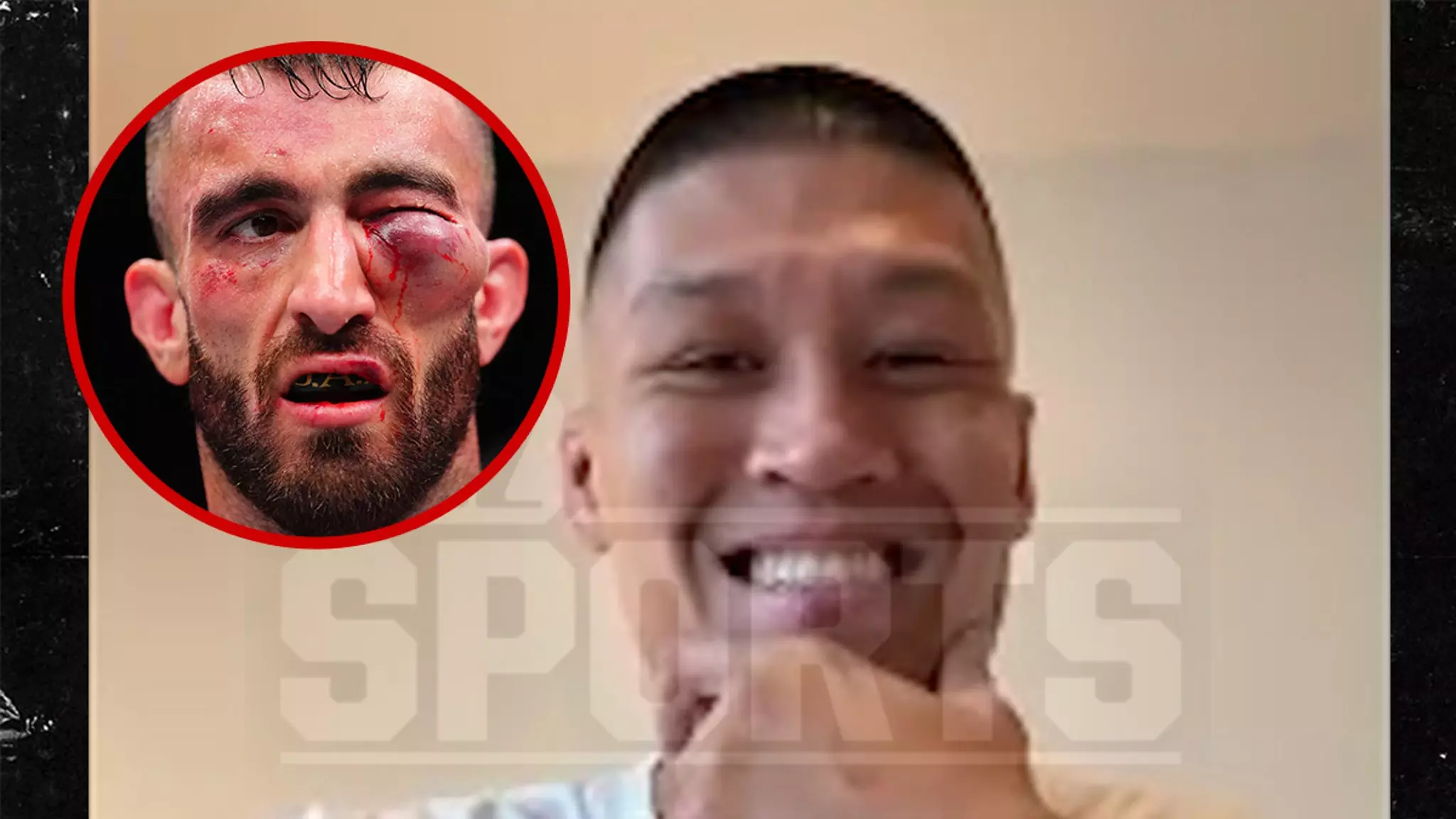In the intense world of mixed martial arts, moments of brutality often overshadow the finer intricacies of combat ethics and fighter resilience. The recent UFC event, marked by a gruesome injury to Mohammad Yahya, has reignited debate about the responsibilities of referees versus the tenacity of fighters. While many viewers were quick to criticize referee Jason Herzog for not stopping the fight immediately, a deeper examination reveals more about the unspoken values that define true warriors. Herzog’s decision—or, more accurately, the decision of the Octagon-side physician—highlighted the crucial line between protecting a fighter and honoring their fighting spirit. Nguyen’s defense of Herzog underscores an essential point: sometimes, true courage lies in pushing beyond visible injuries, embodying a spirit resistant to premature interference.
The Warrior Spirit versus Safety: An Ongoing Moral Dilemma
Nguyen’s perspective offers a powerful insight into what drives fighters to continue despite devastating injuries. His respect for Yahya’s desire to persevere illuminates a core aspect of MMA culture—an unyielding resilience rooted in mutual respect and personal honor. Yet, this resilience also raises questions about safety and longevity. While fighters often display extraordinary mental fortitude, their bodies are vulnerable, and medical professionals are tasked with ensuring their well-being. Herzog’s decision to defer to medical experts rather than intervene prematurely echoes a nuanced understanding that safety isn’t merely about visible injuries but about protecting fighters from unseen harm. Nguyen’s acknowledgment of Yahya’s fighting heart promotes a narrative that champions inner strength, but it also subtly demands that the sport’s integrity balance with fighters’ health.
Redefining Respect in the Arena
The fighters’ mutual respect, expressed through Yahya’s desire to keep fighting and Nguyen’s appreciation, exemplifies an often overlooked aspect of MMA: camaraderie and admiration forged through shared struggle. Despite fierce competition, fighters recognize a fellow warrior’s grit and determination. Nguyen’s victory and subsequent interview serve as a testament to this camaraderie. It suggests that true respect isn’t just about winning or losing but about recognizing the heroic effort each athlete invests into every bout. Such narratives challenge the stereotypical images of aggressive combat, instead emphasizing the nobility embedded within the sport. These moments of genuine respect contribute to the sport’s credibility and serve as a reminder that beneath the violence lies a deep-rooted culture of honor and perseverance.
The Broader Implications for MMA Culture
This incident also prompts us to question the evolving ethos of mixed martial arts. The sport’s growth has been accompanied by increasing scrutiny on fighter safety and ethical guidelines. Nguyen’s defense of Herzog underscores a broader shift: athletes and officials are navigating the complex terrain of bravery and responsibility. Fighters like Yahya exemplify the fighting spirit that elevates MMA beyond mere violence, but officials must also ensure that that spirit does not lead to unnecessary harm. The balance that Herzog and medical staff attempted to strike—allowing Yahya to fight as long as possible while respecting medical judgment—illustrates the complex choreography required in high-stakes sport management. Ultimately, this controversy serves as a catalyst for ongoing dialogues about how MMA can evolve to prioritize both the heroic endurance of its athletes and their well-being.
In reflecting on this remarkable episode, one thing becomes clear: real strength in MMA isn’t just measured by the ability to endure pain but also by the moral courage to respect fighters’ autonomy while safeguarding their future. It’s a testament to a sport that’s as much about character as it is about combat prowess.

